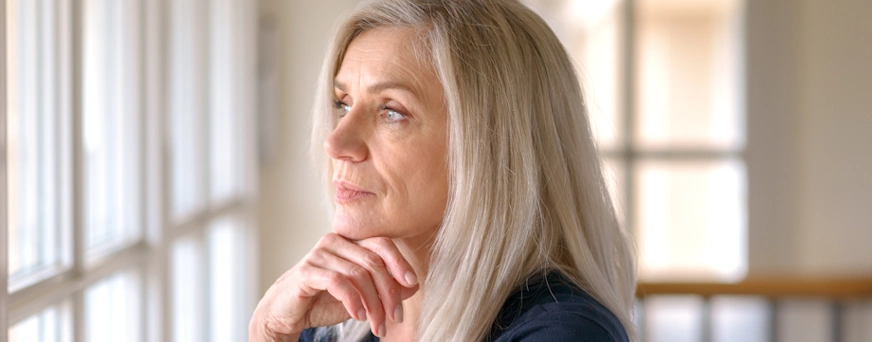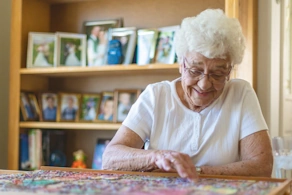Is It Time To Consider End Of Life Care?
Our Key Takeaway
End of life care focuses on comfort, symptom relief, and emotional support for people in the final stage of a terminal illness. It becomes appropriate when treatments no longer help, daily activities become difficult, or the patient and family prioritize quality of life. This care ensures dignity, peace, and personalized support for both the individual and their loved ones.
End of life care can be a daunting prospect for many. Not to mention, it is quite an emotional journey for the patient and the people involved in their life. In the beginning, it is the process of making a set of critical decisions.
These shall determine the care that will best support you in the final stages of your life. This article will help you understand what end-of-life care means and determine whether it is time to consider it.
Life Assure Product Quiz
Take our 30 second quiz and discover which Life Assure medical alert device is the right fit for you or a loved ones.
Life Assure Product Quiz
Take our 30 second quiz and discover which Life Assure medical alert device is the right fit for you or a loved ones.
What Is End Of Life Care?
Life end care is essential medical care. It is aimed towards and provided to people who are in the final stages of their terminal illness. While all medical care is aimed towards curing an illness, this one is quite different.
It is focused on managing the symptoms in the later days of a patient’s life. This is important to ensure their demise is not caused by discomfort and pain but through the gradual changes happening in their body. Patients are given this care in their home, nursing home, or a hospital.
Life end care can have various aspects to it. During this time, a patient’s pain is effectively managed through less dosage of medicine or through relieving activities. They are given ample emotional support and spiritual care as or when they demand it.
Even their daily activities are given great assistance so they can remain calm. A holistic approach is rightfully used to ensure everything from the physical to the mental well-being of the patient.
Signs It Might Be Time For this type of care
The correct timing for going into end-of-life care is important. Sometimes, it is challenging to realize the right time for it. Various indicators can help in this regard. They are medical indicators, quality of life considerations, and patient and family wishes.
Medical Indicators
Medical indicators are clinical signs that can point towards a need for this type of care. These are:
Progressive Decline
When a very noticeable decline in physical health is seen, it can be a sign towards life end care. This entails that even when the patient is undergoing proper treatment and is being given the right medicine, their condition only worsens with time.
The patient might experience rapid weight loss, decreasing strength, and possibly becoming very frail. Healthcare professionals will use a tool called the Palliative Performance Scale (PPS) to assess the patient’s functional status. The PPS can indicate a need for end-of-life care.
Frequent Hospitalizations
It is a sign that your symptoms are worsening and your health is declining when you find yourself making constant hospital visits. Frequent hospital visits are reason enough that the current medical interventions are not working to manage the disease.
Severe Symptoms
Constantly having resurfacing symptoms like pain, shortness of breath, fatigue, and nausea can also be a sign towards starting end-of-life care.
Such symptoms are usually persistent and are difficult to manage with standard treatments. End-of-life care brings forward specialized care that targets such distressing conditions once and for all.
Quality Of Life Considerations
The quality of life, if deteriorating, can also be a sure-shot sign of the need for life end care. Here are some key considerations in this regard:
Daily Living Difficulties
The patient may be starting to face various difficulties with daily activities. These can be eating, bathing, dressing, and mobility. When such simple tasks become burdensome, it necessitates additional support and care.
Loss of Independence
Increasing dependence on others can significantly affect the patient’s sense of self. They may find even valued activities less relevant and lose the ability to enjoy themselves. This loss of independence can fuel feelings of frustration and sadness in the patient.
Emotional Distress
The most noticeable is the emotional distress that patients with terminal illnesses face. End-of-life care teams can assist such patients in overcoming complex emotions regarding their current state and feeling better in the long run.
Patient And Family Wishes

It is the most important thing to respect the wishes of the patient and their family. The decisions they have regarding final care must be respected at all costs. Here are some important factors to consider:
Advanced Directives
The advanced directives entail the living wills and instructions that the patient has given for their treatment. These are guides to how a person’s final care will be carried out and the kind of medical treatments they shall get.
Family Conversations
There needs to be open conversations with family members regarding the patient’s comfort and preferences. Their desired level of care and values shall be respected by their family.
This is important to ensure that the patient receives only the right care in their final days, letting the family members be at peace.
The Benefits Of End Of Life Care

Choosing life end care for yourself is an essential decision. It also brings important benefits that enhance the quality of life for the patient’s remaining days. Here are some benefits of this care:
Improved Quality Of Life
End of life care brings about better symptom management. It can help relieve pain so the patient feels more comfortable. Various comfort measures are also undertaken to ensure the patient’s well-being. This involves specialized equipment from therapeutic mattresses to oxygen therapy.
Emotional And Psychological Support
Such type of care also focuses on providing immense emotional and psychological support to the patient and their families.
It helps them deal better with emotional distress while navigating complex feelings regarding their illness. Psychologists and counselors are often on board with the care team to ensure a comfortable experience.
Holistic Approach
In the end, this type of care is meant to provide a holistic approach towards your health in the final days. Ample attention is put into your spiritual care and personal beliefs. Chaplains and spiritual counselors are often available to provide guidance in such difficult times.
Family involvement is also encouraged in this care. Families can play an important role in providing emotional support to the patient.
Conclusion
End of life care has a certain taboo around it, which one must break through. It is an important care form that every person in the last stages of their terminal illness deserves.
By understanding the nature of this care, as stated in this article, you too can make an informed decision about your health.












 Get Help With The Push Of
A Button
Get Help With The Push Of
A Button















